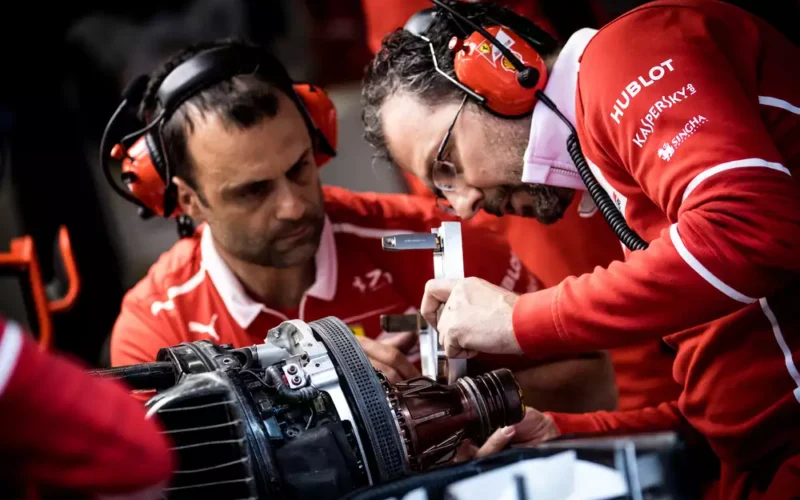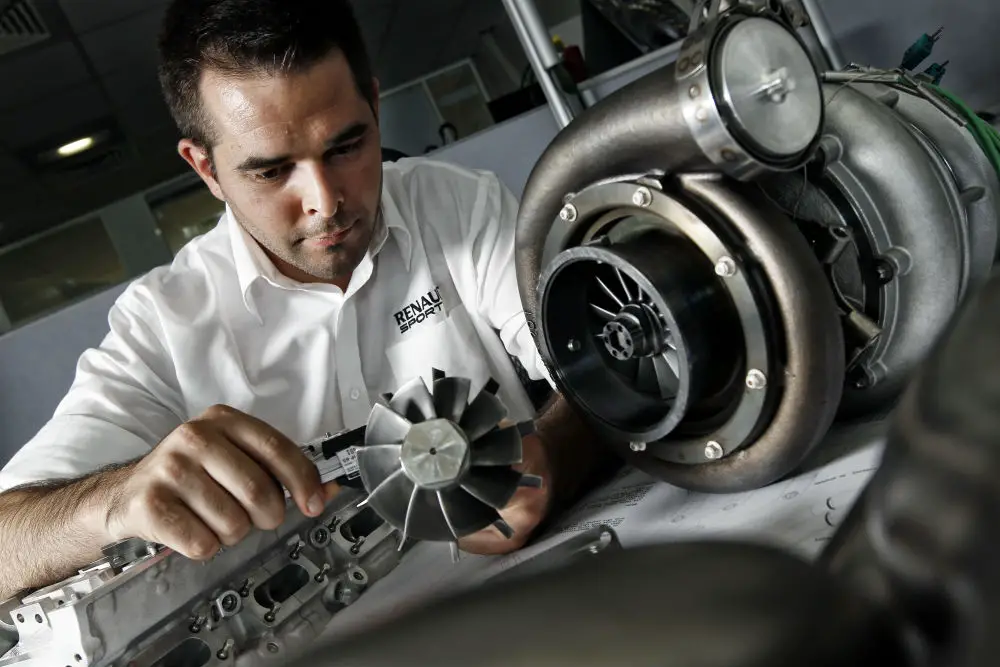Looking to gain insight into the world of Formula 1 racing? Look no further than “Mastering the Hybrid Power Unit: An Inside Look at the Powertrain Engineer in F1.”
This in-depth article takes you behind the scenes to explore the fascinating world of F1 powertrain engineering. Discover how these skilled engineers create and fine-tune the powerful hybrid engines that power some of the world’s fastest cars around the track.
Get a glimpse into the challenges and rewards of working in this exciting field, and learn about the latest innovations and technologies that are shaping the future of F1 racing.
Whether you’re a racing enthusiast, an engineering student, or simply curious about the cutting-edge world of high-performance vehicles, “Mastering the Hybrid Power Unit” is a must-read. So why wait? Dive into this thrilling and informative article today and discover the secrets of the F1 powertrain engineer!
What Does The F1 Powertrain Engineer Do?

In Formula 1 racing, the hybrid power unit is one of the most important components of a car. And it’s the Powertrain Engineer who is responsible for ensuring that the car’s hybrid power unit is performing at its best.
The Powertrain Engineer’s role involves designing, developing, and testing the hybrid power unit.
They work closely with the aerodynamics engineers and performance engineers to ensure that the power unit is delivering the required performance.
The hybrid power unit consists of two main components, the Internal Combustion Engine (ICE) and the Energy Recovery System (ERS).
The ICE is responsible for providing the majority of the power, while the ERS provides additional power from the energy recovered during braking. The Powertrain Engineer is responsible for optimizing the performance of both the ICE and ERS.
They must ensure that the ICE is producing the required power output while also keeping fuel consumption low. At the same time, they must ensure that the ERS is recovering as much energy as possible during braking and delivering it back to the car when needed.
To achieve this, the Powertrain Engineer uses advanced simulation tools to model the performance of the hybrid power unit under different conditions. They also work closely with the drivers and performance engineers to fine-tune the performance of the power unit during practice sessions and races.
In addition to designing and developing the hybrid power unit, the Powertrain Engineer is also responsible for maintaining it. They must ensure that the power unit is running smoothly and that any issues that arise are quickly resolved.
Overall, the Powertrain Engineer plays a crucial role in the success of a Formula 1 team. By mastering the hybrid power unit, they help to ensure that the team’s car is performing at its best and has the best chance of winning races.
Powertrain Engineer Qualifications
A degree in mechanical engineering, electrical engineering, or a related field is usually required. Engine team members also need to have good technical skills, troubleshooting skills, and teamwork skills.
They also need to have experience working with F1 power units and engine manufacturers, such as Mercedes, Ferrari, Renault, or Honda.
Powertrain Engineer Salary
Possible ranges for the annual salary
$60,000 – $140,000
These are only rough estimates and may not reflect the actual salary in F1. The salary may also depend on other factors such as bonuses, incentives, and benefits. F1 engineers also have to work long hours and travel frequently, which may affect their quality of life.

